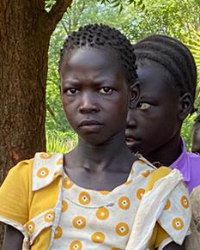Lopid, Lafit in South Sudan

Photo Source:
Anonymous
|
Send Joshua Project a map of this people group.
|
| People Name: | Lopid, Lafit |
| Country: | South Sudan |
| 10/40 Window: | No |
| Population: | 116,000 |
| World Population: | 116,000 |
| Primary Language: | Lopit |
| Primary Religion: | Ethnic Religions |
| Christian Adherents: | 20.00 % |
| Evangelicals: | 6.00 % |
| Scripture: | Portions |
| Ministry Resources: | No |
| Jesus Film: | Yes |
| Audio Recordings: | No |
| People Cluster: | Nilotic |
| Affinity Bloc: | Sub-Saharan Peoples |
| Progress Level: |
|
Introduction / History
The Lopid people speak the Lopit language, which is part of the Nilo-Saharan language family. It is a stable indigenous language used as a first language by all members of the ethnic community. However, it is not formally taught in schools, and its use is primarily sustained within homes and local communities. Lopids have lived in the Eastern Equatoria region of South Sudan for generations, maintaining a rich cultural heritage rooted in oral traditions and communal life.
What Are Their Lives Like?
The Lopid people are agro-pastoralists, meaning they combine farming and livestock herding as their primary means of livelihood. They cultivate crops such as sorghum and maize, and raise goats, sheep, and cattle. Their villages are typically composed of extended families, and homes are built from local materials, such as mud and grass. Social life is deeply communal, with traditional ceremonies, music, and dance playing a central role in cultural expression.
What Are Their Beliefs?
The Lopid people practice a blend of traditional African religions and Christianity. Traditional beliefs include ancestor veneration and spiritual rituals tied to nature and seasonal cycles. Christianity has been introduced through missionary efforts, and many Lopid now identify as Christians, though syncretism—the blending of Christian and indigenous beliefs—is common.
What Are Their Needs?
Clean water is limited, especially during dry seasons. The Lopids have an inadequate healthcare infrastructure, with few clinics and trained professionals. Partly because of a lack of schools, their literacy rate is low, which limits them to subsistence farming.Vulnerability to conflict, both inter-ethnic and political, which disrupts development and safety.
Prayer Points
Pray for spiritual revival among the Lopid, that the gospel would take deep root in their hearts.Pray for the completion and widespread distribution of Bible translation efforts in the Lopit language.Pray for local churches and missionaries to be strengthened in their outreach and discipleship.Pray for peace and reconciliation in South Sudan, especially in regions affected by ethnic tensions.Pray for education and literacy programs to empower the next generation of Lopid leaders.